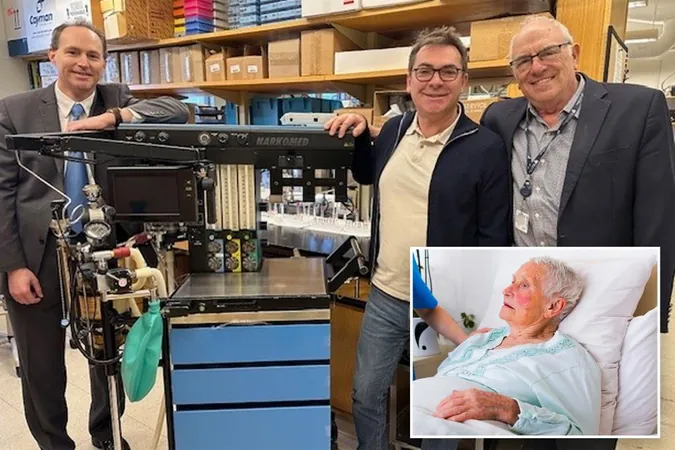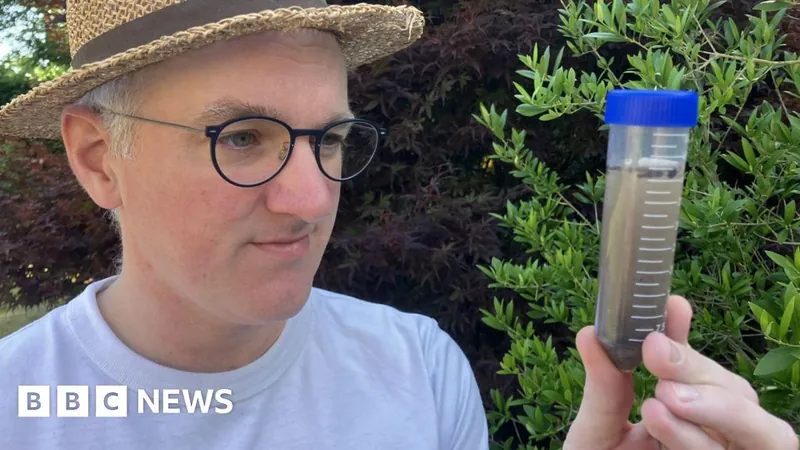
Breakthrough in Alzheimer’s Treatment: Researchers Harness Xenon Gas!
2025-01-16
Author: Wai
Breakthrough in Alzheimer’s Treatment: Researchers Harness Xenon Gas!
In a groundbreaking study, scientists have identified a potentially revolutionary method for treating Alzheimer’s disease using xenon, a gas that’s colorless, odorless, and tasteless. Alzheimer’s disease, which affects over 6 million people in the United States alone, currently has no cure, and progress in treatment has long been hampered by a limited understanding of the disease's underlying causes.
Researchers from Brigham and Women’s Hospital in Boston have found that inhaling xenon gas may confer protective effects on the brain. A clinical trial is set to start in the coming months, with scientists eager to discover whether these findings will manifest similarly in humans.
"One of the biggest hurdles in Alzheimer’s research is developing treatments that can cross the blood-brain barrier, but xenon gas appears capable of doing just that," explained Dr. Oleg Butovsky, lead author of the study. His team’s research indicates that when mice with Alzheimer’s inhaled xenon in a specially designed chamber, they exhibited reduced brain inflammation, decreased brain cell loss, and improved cognitive performance during activities like nest-building.
Amazingly, xenon triggers an enhanced protective response from microglia—crucial immune cells integral to maintaining brain health. Microglia monitor the brain for potential threats such as infection and injury, and their dysfunction has been identified as a key factor in Alzheimer’s progression, contributing to inflammation and the buildup of amyloid beta plaques.
Alzheimer’s is the most prevalent form of dementia, leading to severe memory loss, confusion, and other cognitive disturbances that deeply impact patients and their families.
The study’s findings were published in the esteemed journal *Science Translational Medicine*, paving the way for further exploration of xenon in treating various neurological conditions, including multiple sclerosis and ALS (Lou Gehrig's disease).
"If the upcoming clinical trial shows promising results, it could revolutionize treatment options for neurological diseases," Dr. Howard Weiner, a principal investigator on the trial, commented. The potential applications for xenon gas in medicine could mark a significant step forward in tackling some of the most challenging conditions facing patients today.
Stay tuned as this exciting adventure in neuroscience unfolds—could xenon gas be the key to unlocking new frontiers in Alzheimer’s treatment? The future looks promising!


 Brasil (PT)
Brasil (PT)
 Canada (EN)
Canada (EN)
 Chile (ES)
Chile (ES)
 Česko (CS)
Česko (CS)
 대한민국 (KO)
대한민국 (KO)
 España (ES)
España (ES)
 France (FR)
France (FR)
 Hong Kong (EN)
Hong Kong (EN)
 Italia (IT)
Italia (IT)
 日本 (JA)
日本 (JA)
 Magyarország (HU)
Magyarország (HU)
 Norge (NO)
Norge (NO)
 Polska (PL)
Polska (PL)
 Schweiz (DE)
Schweiz (DE)
 Singapore (EN)
Singapore (EN)
 Sverige (SV)
Sverige (SV)
 Suomi (FI)
Suomi (FI)
 Türkiye (TR)
Türkiye (TR)
 الإمارات العربية المتحدة (AR)
الإمارات العربية المتحدة (AR)